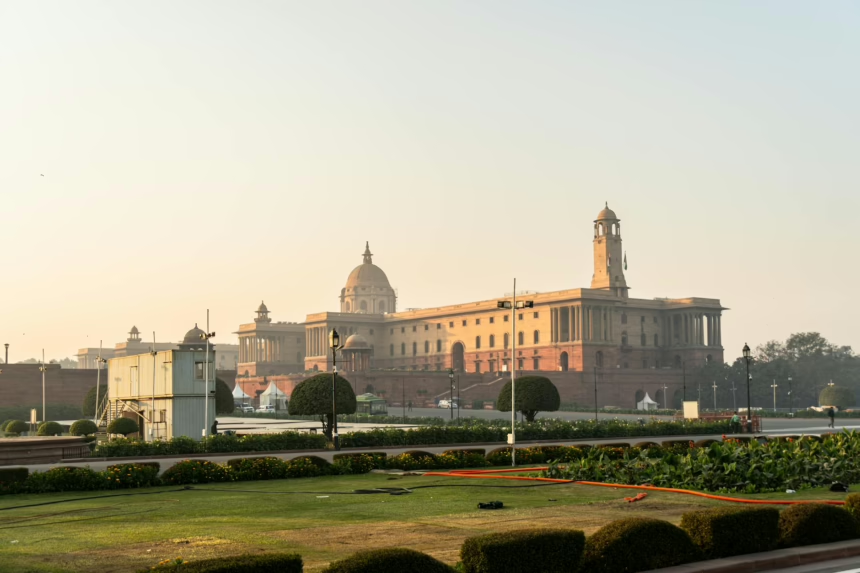Industry Groups Criticize “Politics Above Science” as Logging Industry Sounds Alarm
The recent announcement by the New South Wales Minns government to establish a koala national park has ignited a firestorm of criticism, with key industry bodies accusing the administration of prioritizing political expediency over scientific consideration and the livelihoods of local communities. This move, lauded by some environmental advocates, has been met with significant resistance from sectors directly impacted by land use decisions.
Logging Industry Decries “Own Goal” Amidst Environmental Policy Shift
Timber NSW, a prominent industry group, has publicly voiced its strong disapproval of the koala park initiative. The organization labeled the government’s decision an “own goal,” asserting that it demonstrates a clear preference for “politics above science and people.” According to Timber NSW, the announcement was made by Minister Penny Sharpe, and they are now urging Premier Minns to reconsider the implications for the state’s logging industry and the individuals it employs. The group’s stance suggests a deep concern that this policy shift could have significant economic repercussions and may not be grounded in comprehensive ecological assessment.
Debate Over Koala Conservation and Economic Impact Intensifies
The establishment of a koala national park is ostensibly aimed at protecting the habitat of the iconic marsupial, a species facing ongoing threats from habitat loss and fragmentation. However, the Timber NSW statement highlights a growing tension between environmental conservation goals and the economic realities of industries that rely on access to forested land. The industry group’s accusation that the government is valuing “politics above science” suggests a belief that the decision may be driven by public relations rather than robust data and long-term sustainability planning. This raises pertinent questions about the process by which such significant land use changes are decided and the extent to which affected industries are consulted.
Broader Political Undercurrents: Immigration Debate Simmers
Beyond the immediate controversy surrounding the koala park, the provided source also touches upon other sensitive political discussions within New South Wales and Australia more broadly. A linked article from the same source notes that Jacinta Nampijinpa Price is accusing a Liberal colleague of “cowardly” conduct as Sussan Ley attempts to moderate a debate on Indian immigration. While seemingly distinct from the koala park issue, this mention of ongoing political tensions and differing approaches to public discourse underscores a period of significant policy debate and internal party friction within the Australian political landscape. These broader debates can often influence the reception and implementation of environmental policies, adding layers of complexity to seemingly straightforward decisions.
Weighing the Tradeoffs: Environmental Protection vs. Economic Viability
The core of the conflict lies in the inherent tradeoffs between ambitious environmental protection measures and the economic sustainability of industries that operate within or adjacent to these protected areas. The Minns government’s decision to expand koala habitat protection, while potentially beneficial for koala populations, appears to have overlooked or underestimated the concerns of the logging industry. The industry’s perspective suggests that such decisions can have a ripple effect, impacting not only businesses but also the communities that depend on them for employment and economic activity. The claim of “politics above science” implies that the government may have prioritized an easily marketable environmental win over a more nuanced, evidence-based approach that considers all stakeholders.
What to Watch Next: Government Response and Industry Action
The immediate future will likely see continued pressure on the Minns government from Timber NSW and potentially other affected industry groups. It remains to be seen how Premier Minns and Minister Sharpe will respond to the escalating criticism. Will they engage in further dialogue with the logging industry to explore mitigation strategies, or will they stand firm on their decision, potentially leading to further political fallout? Observers will be keen to see if the government provides further scientific justification for the park’s establishment and outlines any plans to support industries impacted by the land use changes. The debate also raises questions about transparency in environmental decision-making and the importance of inclusive consultation processes.
Navigating the Complexities of Environmental Policy
This situation serves as a crucial reminder of the delicate balance required when formulating environmental policy. While the protection of endangered species is a vital objective, it must be pursued with a comprehensive understanding of the economic and social implications. For policymakers, this means engaging in thorough consultation with all stakeholders, grounding decisions in sound scientific evidence, and developing strategies that address potential negative impacts on industries and communities. For the public, it underscores the importance of scrutinizing policy announcements and understanding the various perspectives involved in such complex issues.
Key Takeaways:
- The New South Wales Minns government’s decision to establish a koala national park has drawn strong criticism from the logging industry.
- Timber NSW has accused the government of prioritizing “politics above science and people” and called the decision an “own goal.”
- The controversy highlights the inherent tradeoffs between environmental conservation and economic impacts on industries reliant on land use.
- Broader political debates, such as those surrounding immigration, also reveal underlying tensions within the Australian political landscape.
- Future developments will depend on the government’s response to industry pressure and its willingness to engage in further consultation and support measures.
Call to Action:
It is crucial for citizens to stay informed about these policy decisions and their potential impacts. Engage with your elected representatives to express your views on environmental policy and economic development. Support organizations that advocate for balanced approaches to conservation that consider the needs of both the environment and the communities that depend on natural resources.


